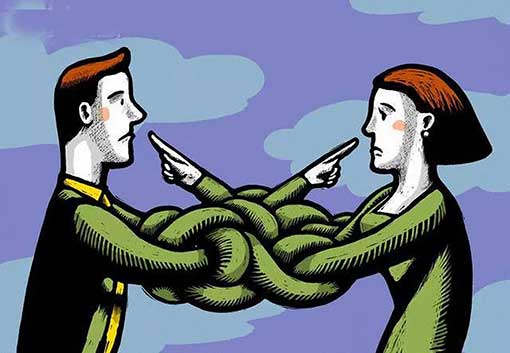
Ways to Relax the Brain

We tire ourselves, we push ourselves, we try to think and solve many things, to exceed our capacity in order to succeed, and we try to keep up with everything, and then we wonder why we feel tense, why we have started to become forgetful. Life tires everyone to some extent, but some of us get excessively tired, and it is impossible for this not to have negative consequences. So what is the solution? Of course, it is to give the brain a break. No matter how strong your body is, no matter how resilient you are, if you do not take breaks, do not go on vacation, and do not distance yourself from your daily routine, one day you will pay the price for it. For example, you may experience issues such as high blood pressure, headaches, irritability, absent-mindedness, depressive mood, and insomnia. We hope our research on ways to relax the brain will guide you in this matter.
Make sure to go on vacation. Review vacation programs that fit your budget each year and try to arrange a 1-week to 10-day vacation. One of the conditions for being able to rest is for a person to distance themselves from the environments that tire them.
Relax both your body and mind on vacation. Swim, take walks, take photos, explore the surroundings. Try not to think about work and do nothing related to work. You have worked enough, and your brain is worn out; now it is time to repair it.
Dedicate time to your hobbies. Doing things you enjoy relaxes you.
Keep your relationships with negative people limited. Those who are always pessimistic and think negatively give weight and fatigue. We are not talking about periods of morale breakdown experienced for a specific reason. Some people are pessimistic under all circumstances, at all times, everywhere, and they negatively affect you as well.
Get enough sleep. While the required amount of sleep varies from person to person, an adult needs to sleep at least 6 hours a day. Sometimes you may need to sleep less for a reason, and you can cope with that. However, if you consistently sleep less than necessary, your brain will become tired and worn out.
Exercise. Light daily exercises are good for both the body and the mind. Regular exercise has serious positive effects on mental health.
Socialize, engage in conversations about non-work-related topics. Meet with your friends and share about everyday topics unrelated to work, joke around, and laugh. This will lighten you up.
Don’t overload yourself. People who work excessively, fill their brains too much, and do not empty them enough do not realize the damage it creates in their brains in a short time. They may even congratulate themselves for their resilience. However, this can have serious consequences in the medium and long term. If you care about your physical and mental health, be merciful to yourself.
Taking a warm shower, listening to classical music or Turkish music (some modes have a relaxing effect) are also among the ways to relax the brain. If you want to be successful in your job, build a career, and stay productive and fit for many years, you should pay attention to relaxing your brain.
Psychology and Mental Health Other Content in the Category

Psychology and Mental Health
What You Need to Know About Panic Disorder and Panic Attacks

Psychology and Mental Health
Pregnancy Psychology

Psychology and Mental Health
What is Occupational Therapy, Who is an Occupational Therapist?

Psychology and Mental Health
What is Projection in Psychology?

Psychology and Mental Health
Unconscious Use of Antidepressants is Harmful!

Psychology and Mental Health
15 Ways to Cope with Stress

Psychology and Mental Health
What is Postpartum Depression, What are its Causes and Symptoms?

Psychology and Mental Health
15 Ways to Keep Your Brain Sharp and Active

Psychology and Mental Health
How to Prevent Mental Fatigue

Psychology and Mental Health
How Can You Cope with Stress at Work?

Psychology and Mental Health
Ways to Relax the Brain

Psychology and Mental Health
Methods to Increase Brain Capacity

Psychology and Mental Health
Ways to Increase Personal Motivation

Psychology and Mental Health
Positive Thinking - The Relationship with Success

Psychology and Mental Health
